► The uber-simple new mini dash cam
► How good is the image quality?
► Is the Nextbase Piqo worth your cash?
When it comes to absolute simplicity in design and tech, the Nextbase Piqo dashcam is the epitome of that statement. It’s designed to appeal to younger buyers aged between 17-45, and it was found in a Nextbase study that 61% of those surveyed preferred a dashcam without a screen.
The Piqo therefore, like anything in business, is a response to demand. It’s offered in two specifications: 1K or 2K, and starts at a penny below £100. It’s a much more affordable option than the brand’s IQ model, and a far simpler one than the high-tech Nextbase 522 or 622GW models and similar.
We tested the 2K, which while being the slightly more expensive option, is currently on offer for a fiver below the price of the base 1K model at £94.00. See the Black Friday Nextbase Piqo offer here.
It’s coined to be a vigorous new competitor for simple, no-nonsense mini dash cams – and as someone who prefers simplicity over complicated new tech, I couldn’t wait to give it a go.
Nextbase Piqo
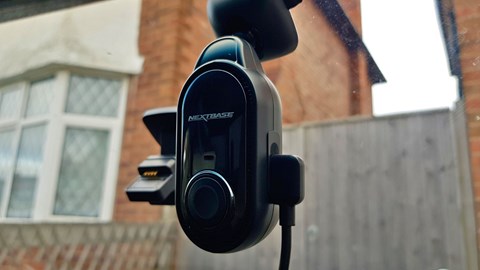
RRP
£94.00 (WAS £99.00)
| VIEW OFFER
Pros
- Slim, modern design
- Packed with features
- Easy to use and very subtle
Cons
- We found it slightly tricky to set up on test
- Video quality falls short of 4K dashcams at this price point
Features:
- Guardian Mode Lite
- Voice control
- Witness Mode Lite
- Emergency SOS – enabled with Nextbase Protect subscription
Nextbase Piqo: the good
There’s a lot to like about the Piqo. Chief among which is the size of the device; even with the ClickMount attached, it only fits on the palm of my hand without stretching onto my fingers. The actual unit is roughly the same length as a classic Swiss army knife, so you can really carry it around in your pocket.
So, when the dashcam is mounted next to the rear-view mirror, it’s incredibly subtle compared to other devices. In a car park, I really had to look closely to notice it was in place. It presents a nice level of subtlety that some people may want with a dashcam.
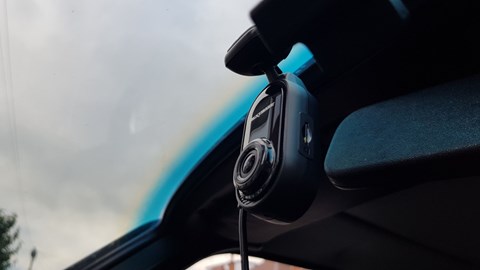
I also like the design. Some of the Nextbase dashcams are beginning to show their age, and I like how the Piqo follows the design language of the IQ model, but in more updated form. And like other Nextbase products, it feels like a quality product. The materials are nice to touch, and you get a good sense that it was assembled properly. This is especially reassuring when you learn that the camera along with the ClickMount was crash tested on track-mounted jigs to replicate varying levels of G-forces in a collision.
It’s also packed with features. Notable ones include Witness Mode Lite, which alerts and sends footage to an emergency contact, should a road incident occur. Thankfully, I didn’t have to use it, but it’s nice to know it’s there. I didn’t have to use Guardian Mode Lite either; this sets parameters on your vehicle’s speed and geofence, which could be useful if you’re sharing a vehicle.
Nextbase Piqo: the okay
The one I had on test was the slightly uprated 2K model, which differs from the 1K because it costs £129.99 rather than £99.99. For the extra £30, you get a 1440p recording resolution rather than 1080p as well as a 145º degree field of view rather than 140.
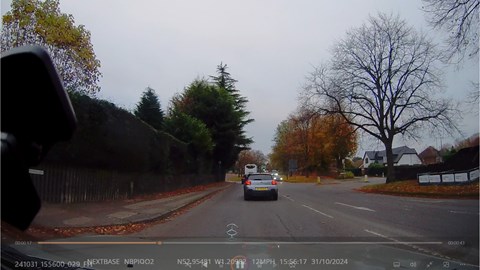
I wasn’t expecting perfection with the video quality, but after reviewing the footage, I found that details were a tad trickier to read than I expected. My test of how far away you can read a registration plate only extended to a car length between me and the vehicle ahead. Anything beyond was hidden behind a small field of blur.
However, you can’t expect perfection for a dashcam at this size and price point. It can still clearly read events that you see on the road, which is important for submitting footage to the police or insurance companies.
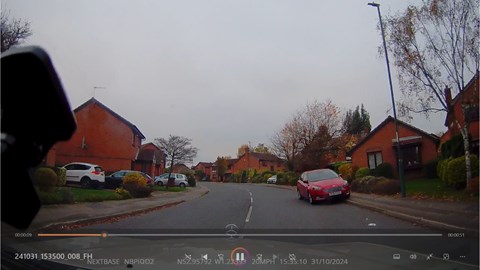
Nextbase Piqo: the bad
I’m going to give the benefit of the doubt on this one – and I might even blame my incapability of setting things up in general. But it took three attempts to set up the Piqo app. I tried twice to do so in the car, each without success.
As my Mercedes is 40-years old, sitting and letting it idle while waiting for the firmware to update would either result in the engine getting hot or simply wasting fuel. I resorted to plugging in the power cable to my laptop as I figured it would take a while. But it ended up installing in minutes – and only after I pressed the centre button through the different stages umpteen times.
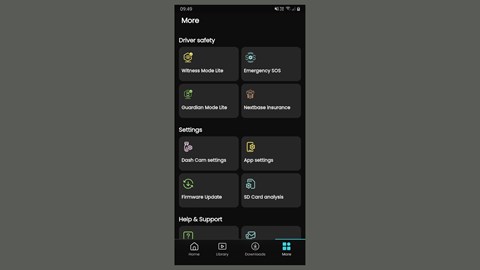
I still don’t really know how I managed it, but I definitely remember feeling it could’ve and should’ve been much simpler. Once you’re on the app though, it’s a pleasantly easy place to navigate and has a crisply modern design. You can easily share footage across, and there’s very little in the way of lag.
Nextbase Piqo: verdict
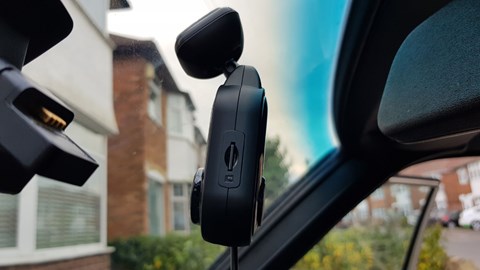
The Piqo isn’t a perfect unit – and other Nextbase dashcams do provide more comprehensive setups. I hadn’t expected it to be for the price point, nor its technical specifications. It doesn’t break any records for camera quality, features, or pretty much anything else.
However, I had a long thought about it. And despite the fact that other high-tech dash cams offer loads more equipment than the Piqo, and record in 4K, that I’d be more than happy to opt for one with my own money.
Once you’ve sussed through the setup, there’s simply no need to keep an eye on things other than formatting the SD card. I’m just not sure that I could get the most out of another high-tech dashcam. It’s the tomato sauce of dashcams for me: affordable, simple as you like, and no-nonsense.
I do wish that Nextbase offered a rear camera for optimum viewing. Perhaps that could be even smaller than the front Piqo unit for ultimate subtlety. But it might take some time before that gets developed and becomes an option.
Verdict score: 4/5
Ratings
Design: 5.0
Ease of use: 4.0
Value for money: 4.5
Video quality: 3.5
Overall: 4.0
Specifications (2K model tested):
Dimensions: 109 x 40 x 32mm
Video quality: 1440p (2560 x 1440p)
Field of view: 145º
Price: £129.99
Other items to consider
Garmin Mini 2
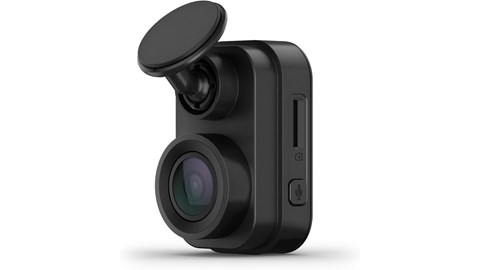
Road Angel Halo Go
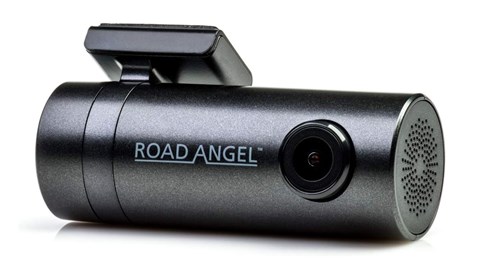
Miofive 4K cam
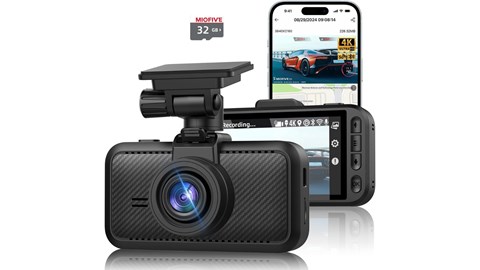
How the Nextbase Piqo was tested
As you can predict, the Piqo was tested by mounting the device into my car. I drove around the local area in different environments before reviewing the footage. I downloaded and set up the app to judge how easy it was to share and store the footage taken, and simply used my judgements to assess other aspects, such as its subtlety and ease of use.
Who tested the Nextbase Piqo?
The Piqo was tested by Aaron Hussain. He is a commercial content writer for CAR and its sister motoring site, Parkers, and has vast experience testing out a multitude of products to determine their purpose and worth.